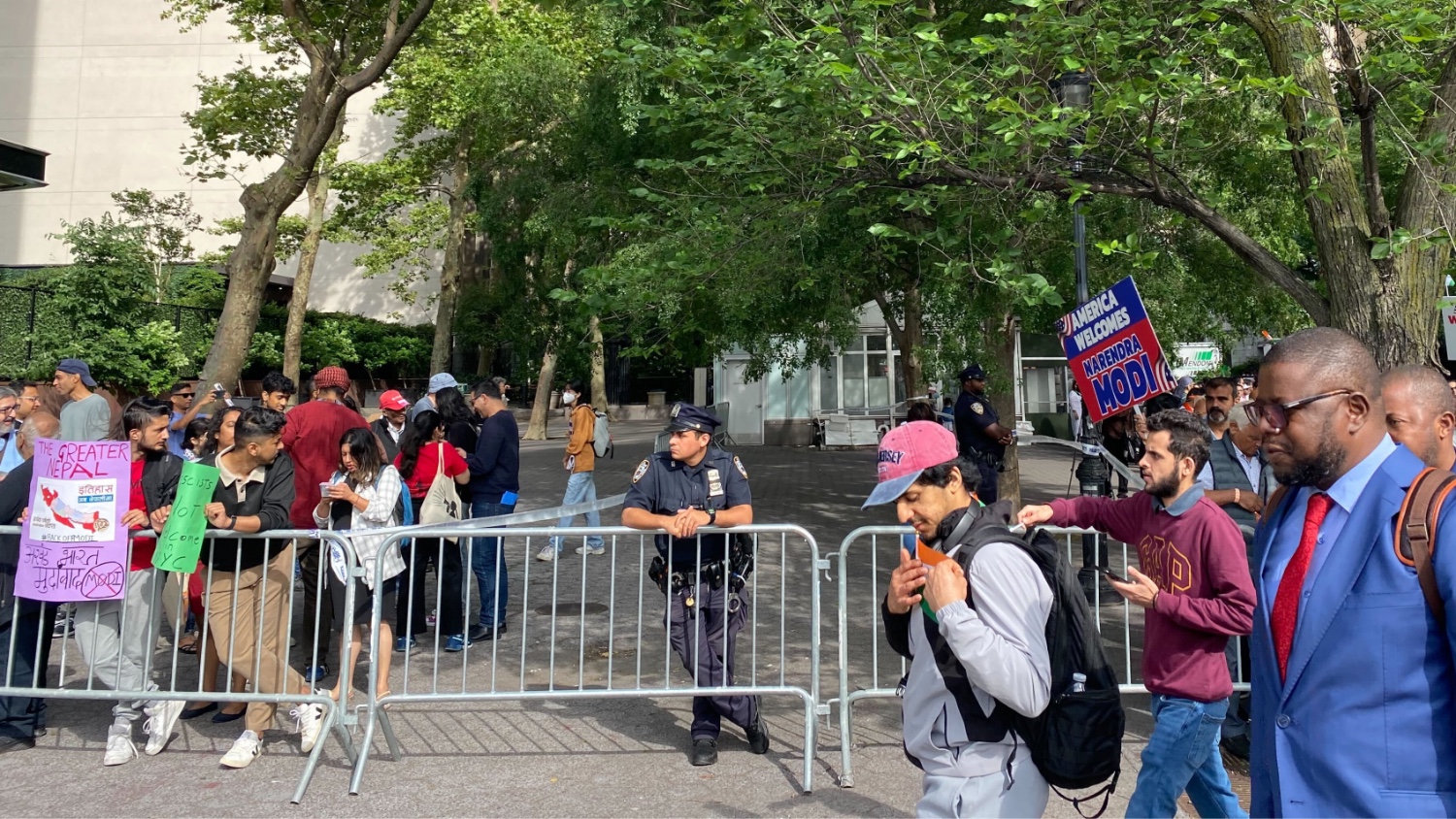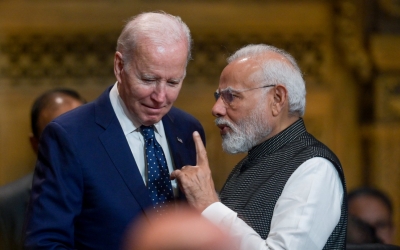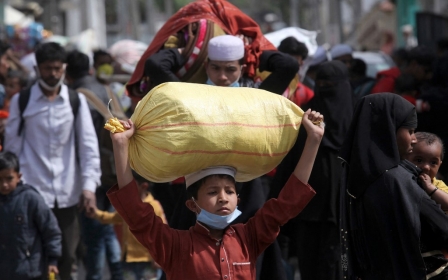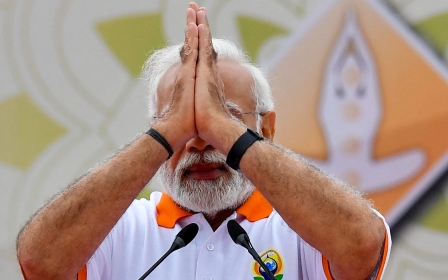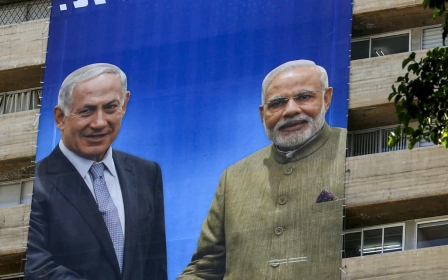Rights groups urge Biden to press India's Modi on civil society crackdown
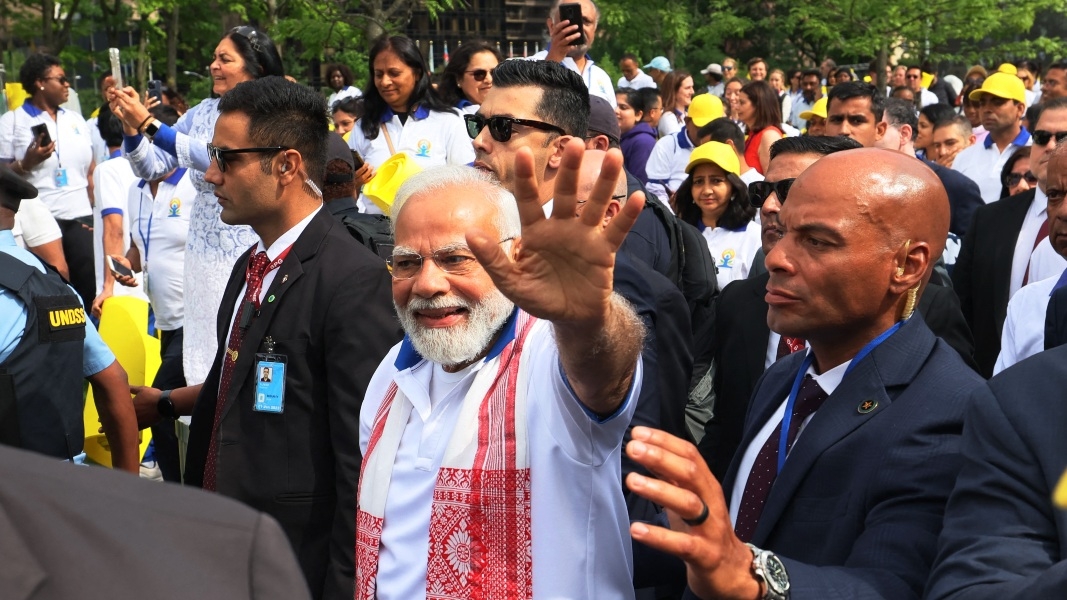
Indian Prime Minister Narendra Modi's visit to the US was met on Wednesday with opposition and protest, as activists and religious freedom experts pleaded with the Biden administration to raise the issue of human rights in the South Asian country.
Ahead of his arrival at the White House and meeting with Biden on Thursday, a coalition of Indian American organisations held a press conference at the National Press Club in Washington, where they spoke about the ongoing crackdown on India's minorities.
"As Washington celebrates its relationship with India and looks to deepen trade and security with Prime Minister Modi's official visit here in Washington this week, it's important that the reality of the human rights and religious freedom conditions are also included in that conversation," said Nadine Maenza, a fellow at the Wilson Center and former chair of the US Commission on International Religious Freedom (USCIRF).
"We just can't look away and neither can the US government and neither can the international community."
As Indian flags were hoisted on light poles all around downtown Washington in anticipation of Modi's visit, activists in New York and Washington - the two cities Modi is visiting - organised protests and demonstrations against the prime minister.
On Tuesday, Human Rights Watch organised a screening of the BBC documentary that highlighted Modi's role in the 2002 Gujarat riots, in which a thousand people were killed, most of them Muslims.
On Wednesday, as Modi was leading a Yoga session at the United Nations headquarters, activists gathered outside in protest of the event. They were also met by a larger crowd of Modi supporters, showing the prime minister's popularity within the Indian-American community.
'It's shameful that Modi has been given a platform at our nation's capital'
- Rashida Tlaib, US congresswoman
And on Thursday, organisers are set to gather at Black Lives Matter Plaza, right in front of the White House, to demonstrate against Modi's meeting with Biden, and urge the US president to deliver a strong stance against New Delhi's crackdown on civil society.
White House National Security Advisor Jake Sullivan told reporters on Tuesday that while Biden will raise concerns of democratic backsliding and attacks on Muslims and minorities, Washington will not "lecture" Modi.
When the US sees challenges to press, religious or other freedoms, “we make our views known”, Sullivan said. He added: “We do so in a way where we don’t seek to lecture or assert that we don’t have challenges ourselves."
Still, several members of Congress have opposed the visit and are boycotting the address that Modi will be giving to a joint session of Congress.
Ilhan Omar and Rashida Tlaib, two Muslim women lawmakers in Congress, and Congressman Jamie Raskin will be skipping the address in protest of Modi's visit.
“It's shameful that Modi has been given a platform at our nation's capital - his long history of human rights abuses, anti-democratic actions, targeting Muslims & religious minorities, and censoring journalists is unacceptable,” Tlaib said in a tweet.
Modi is 'deafeningly silent'
In the State Department's latest report on religious freedom released this year, India was spotlighted for explicitly targeting religious minorities, joining a list of countries that includes Russia, China, and Iran for its treatment of religious minorities.
The report details a range of concerns about religious freedom in India. Among them is the continued prohibition against religious conversion in multiple Indian states, attacks against religious minorities, and systemic discrimination directed against Muslims - including “cow vigilantism”, which results in attacks for alleged cow slaughter or beef trade.
One incident occurred in Madhya Pradesh, a central state in India, when police arrested 148 mostly Muslim individuals in April. After the arrests, the state bulldozed 16 homes and 29 shops owned by Muslims accused of inciting violence, the report said, citing the BBC.
India has come under fire from several rights groups for its treatment of religious minorities. In March 2022, the US Holocaust Memorial Museum warned about the rising risks of mass atrocities in India against religious minorities.
In 2019, New Delhi revoked Article 370 of India's constitution, the clause that granted Kashmir's Muslim-majority region semi-autonomous status within the Indian Union.
That same year, India also introduced the Citizenship Amendment Act, which rights groups have argued violates India's secular constitution by making religion a basis for citizenship.
Lien Gangte, the senior leader of the North American Manipur Tribal Association, spoke at Wednesday's press conference about how the homes of his family and others have been burned down by mobs, simply because they are a part of the Kuki-Zomi ethnic minority in the province of Manipur.
"Since the 3rd of May, Manipur has been on fire. We've lost over 100 lives, 6,100 homes looted and burned, some burnt more than once, including my own home, which was just recently burned again," Gangte said.
"Prime Minister Modi, Narendra Modi has been deafeningly silent. Not a single word since the 3rd of May on the issue of Manipur."
And the Indian government has also cracked down on other parts of civil society, using government-imposed internet blackouts to suppress speech and the spread of information, according to Arjun Singh Sethi, a community activist and civil rights lawyer based in Washington.
"For the last five years, India has led the world in government-imposed blackouts. Blackouts are used to suppress speech and association. And we've seen that they're most often used in Kashmir," Sethi said during Wednesday's press conference.
Maenza said that during her time as chair of the USCIRF, the association had recommended that the State Department label India as a country of particular concern (CPC), a designation reserved for nations that are guilty of "particularly severe violations of religious freedom under the International Religious Freedom Act".
"This is an opportunity for President Biden to show leadership by speaking directly to Prime Minister Modi about the seriousness of the situation and how he is compelled by law to designate India as a CPC," said Maenza.
"We just urge the Biden administration to bring these issues up and make this week actually make a real difference for the people of India."
Middle East Eye propose une couverture et une analyse indépendantes et incomparables du Moyen-Orient, de l’Afrique du Nord et d’autres régions du monde. Pour en savoir plus sur la reprise de ce contenu et les frais qui s’appliquent, veuillez remplir ce formulaire [en anglais]. Pour en savoir plus sur MEE, cliquez ici [en anglais].


